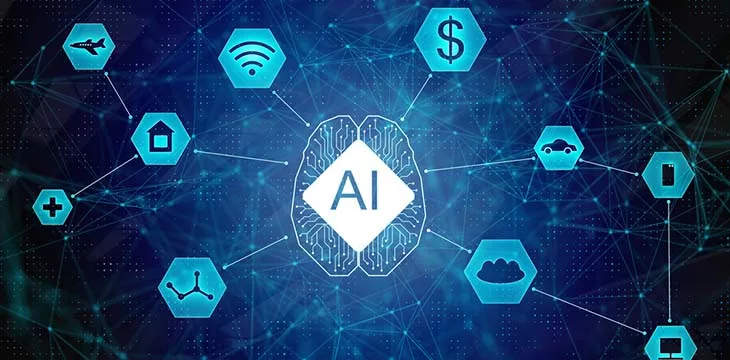|
Getting your Trinity Audio player ready...
|
Microsoft (NASDAQ: MSFT) CEO Satya Nadella’s annual shareholder letter outlined the software giant’s plans for artificial intelligence (AI) integration across its customer products and tech stack.
In the October 19 letter, Nadella said, “Every customer solution and every layer of our tech stack will be reimagined for the AI era. And that’s exactly what we’ve begun to do.”
Specifically, Microsoft is integrating its AI copilot into all of its most-used products. Nadella envisions the AI companion to “shop, code, analyze, learn, create, and more.”
Speaking on AI more broadly, the Microsoft CEO highlighted natural language processing and “a powerful new reasoning engine” as crucial in the artificial intelligence era.
How scalable public blockchains can make the AI age better
Unlike the mobile era, which it largely missed, Microsoft is at the forefront of the AI trend. With a significant partnership with OpenAI and a leading product like Copilot already in play, the firm is an early leader in the AI sector.
However, while Microsoft envisions a world of enhanced productivity, new experiences, and better products, AI researchers, developers, and thought leaders have expressed concern about a wide range of potential issues ranging from data provenance to privacy and security. For example, SEC Chairman Gary Gensler has warned that AI will likely cause a financial crash. Other AI researchers, such as Max Tegmark, have urged caution in developing new AI models.
With Microsoft’s stated intention to build AI into basically everything customers use, it would be wise to grapple with the potential problems and some potential solutions before going too far down the garden path.
As it happens, another revolutionary technology, blockchain, can help guard against and mitigate many of the potential hazards associated with AI.
The time-stamped, verifiable records left on scalable public blockchains can help prove the origins and authenticity of the data AI models were trained on, ensuring the data is accurate and has been sourced transparently and ethically. Blockchains can also ensure AI models don’t rely on centralized databases, which can be hacked, leading to all sorts of privacy breaches.
Speaking of data sourcing, blockchain-based tokens can incentivize users to share their data so AI models can train on them. Instead of unethically harvesting data from app users, firms like Microsoft could pay users micropayments and reward tokens for access to the data their AI models need. Likewise, users could pay firms like Microsoft tiny payments for AI services, opening a new revenue stream for the company.
The tech industry, which has taken a reputational hit in recent years, could restore trust by storing AI model versions and their outputs on public blockchains. This would allow regulators and potentially even the public to track, trace, and check model behavior over time. In this way, any biases, errors, or unethical behavior can be spotted and corrected.
Of course, for any of this to be possible, the public blockchains have to be scalable and have extremely low fees. As of now, only the original Bitcoin protocol (BSV) has the technical capabilities. With 100,000 transactions per second and fees of 1/1,000th of a cent and soon scaling to a million transactions per second sustained, BSV can help AI reach its full potential while keeping the potential downsides in check. As CoinGeek and Ayre Group founder Calvin Ayre points out in his piece on AI and enterprise blockchain, “With a little help from blockchain, AI doesn’t present any challenges that we can’t meet while offering opportunities too good to pass up.”
As AI becomes ubiquitous in our products and lives, tackling these issues and utilizing technology to solve them is more important than ever. Fortunately, BSV can help.
In order for artificial intelligence (AI) to work right within the law and thrive in the face of growing challenges, it needs to integrate an enterprise blockchain system that ensures data input quality and ownership—allowing it to keep data safe while also guaranteeing the immutability of data. Check out CoinGeek’s coverage on this emerging tech to learn more why Enterprise blockchain will be the backbone of AI.
Watch: Blockchain, AI & Web3 at B2029 Meetup in Berlin

 03-02-2026
03-02-2026 




